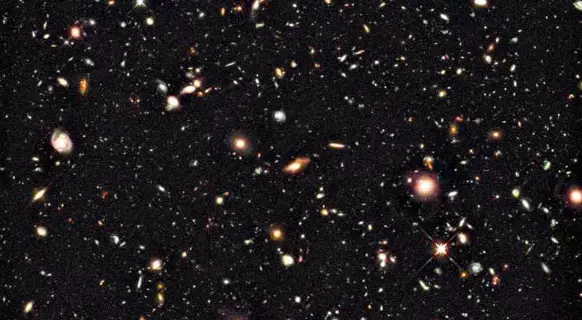
OK, let me ask you question; if there are billions of stars in the sky, why does it get dark at night?
Now, I'm not going to lie to you, this isn't really a question that keeps me awake at night; it's not really something I've ever really thought about.
However, lots of people do spend their days thinking this very thing. A long-standing question that astronomers have struggled with is the 'dark sky paradox' - if there is an infinite number of stars out there, how can it still get dark at night because every point in the sky would/should contain a star?
Advert
And, now a theory that was dismissed for 200 years has been proved right; which is kind of a kick in the teeth for the dead guy who came up with the theory.
via GIPHYAdvert
German astronomer Heinrich Olbers believed that hydrogen clouds could be blocking out the light but astronomers reckoned there was only around 100 to 200 billion galaxies in the observable universe, so not enough to fill the sky.
However, thanks to info obtained by the Hubble Space Telescope, astronomers have worked out there are about two trillion galaxies; which is seriously mind blowing.
Professor Christopher Conselice, a Nottingham university astrophysicist, told the Independent the extra galaxies are able to fill the sky with stars.
He said: "But most of that light, or all of the light from the most distant galaxies, is being absorbed by hydrogen gas which is between us and them.
"That was one of the ideas Mr Olbers had suggested, but people discounted that and we kind of brought that back as a solution to the problem."
So, good ol' Olbers was right all along.
The existence of the hydrogen clouds was demonstrated by examining the spectrum of life, Professor Conselice added. He also thinks there is a possibility that there are even more galaxies which are so far away they're not observable from Earth.
"The honest answer is, possibly, but we don't know," he said.
Featured Image Credit: PATopics: space